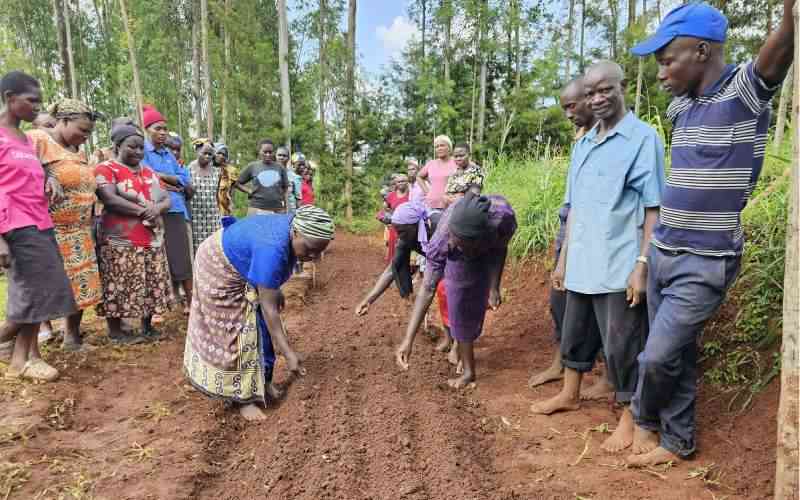×
The Standard e-Paper
Stay Informed, Even Offline

Farmers plant Traditional Leafy Vegetables. [Kennedy Gachuhi, Standard]
On a mid-morning at Vigulu, Vihiga county, a group of farmers is bee-busy at a common farm. Some are digging terraces while others; especially women are bringing in plant materials including branches and maize stalks- some dry, others still fresh.